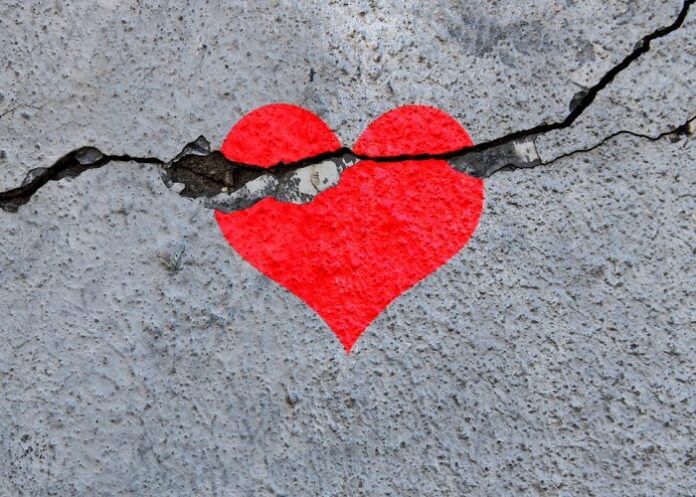Heartbreak – a common trope in fiction – is called takotsubo syndrome in the real world, but is relatively rare, accounting for only about 2% of people who seek medical care for an apparent heart attack, say experts.
Takotsubo syndrome is a short, intense dysfunction in the heart’s left ventricle. It can occur after extreme emotional or physical stress, making “heartbreak” both real and potentially deadly.
Yet while dying of heartbreak has been a popular theme in fiction for a long time, clinicians only began documenting real cases in the 1960s, said Trisha Singh, a cardiologist at University Hospitals Dorset in England.
“It was very typically described as an elderly or a middle-aged woman who just lost a loved one, and a day or so afterwards, she died of heartbreak.”
Science News reports that as imaging technology improved, doctors could directly study the hearts of afflicted patients. In many, the left ventricle – the chamber that pumps oxygenated blood to the body – balloons out.
The shape reminded Japanese clinicians of a takotsubo, a round jar for catching lobsters and octopuses. In 1990, cardiologist Hikaru Sato and colleagues at Hiroshima City Hospital proposed the term takotsubo to describe the condition.
What triggers it is still something of a mystery. One hypothesis is that an acute traumatic event causes a surge of stress hormones such as norepinephrine in the brain and epinephrine in the adrenal glands.
Because the left ventricle is especially rich in receptors for these chemicals, a sudden flood could cause the taut, elastic muscle to become loose and puffy, making it incapable of delivering enough blood to the body.
Another hypothesis is that a stress response “stuns” the heart temporarily. With the majority of cases observed in postmenopausal women, it’s also possible that reduced oestrogen plays a role.
Takotsubo syndrome is not common, but cardiologist Peter Rahko of the University of Wisconsin-Madison recalls a case from the 1980s.
An older woman was called to a hospital in rural Wisconsin and shown the body of her son, who had died in a car accident. “Within five minutes, she started having severe chest pain (and) collapsed on the floor,” Rahko said.
The woman was flown to Madison, where Rahko snaked a catheter into her heart to see if a blockage was causing a heart attack.
“To my surprise, her arteries were totally normal, but her heart function was dramatically reduced.”
In takotsubo syndrome, the heart vessels are often clear. In fact, most patients do not have classic risk factors for heart problems.
In retrospect, Rahko now realises his patient had takotsubo syndrome.
Today, reduced heart function with no clear signs of disease is a tip-off. A doctor will look for acute stress, such as recent bereavement. In some cases, the tragic event is obvious. But even events with a more long-term effect like the Covid-19 pandemic or earthquakes in New Zealand have been documented as tipping points.
Many patients, Singh noted, have mental illnesses such as anxiety or depression.
Short-lived
Though severe, takotsubo is remarkably short-lived and typically not fatal. About 4% of sufferers die, while about 75% fully recover after 10 days, as Rahko’s patient did. Many recover after only 48 to 72 hours.
“It’s absolutely incredible,” Singh said. “I remember seeing a woman who’d come in with her left ventricular function severely impaired, and when I rescanned her six hours later, it had gone from severely impaired to almost mildly impaired to almost normal.”
Standard care is to treat the patient for heart failure. “But now, more recently, especially with seeing some people recover so rapidly, it raises a question,” Rhako said. “Should we even bother trying to put people on these medications? Are they even going to do any good?”
It’s possible that with basic medical support for the patient, the heart may unbreak itself.
Knowing that takotsubo syndrome happens today, Rahko said, it wouldn’t surprise him if some deaths from “grief” in history were takotsubo. When people had little but belief to go on, it was reasonable to think that “some god struck down somebody for whatever malfeasance there was and they dropped dead”, he said. “Now here’s one potential physiologic explanation.”
Science News article – Can you actually die of a broken heart? (Open access)
See more from MedicalBrief archives:
Can you die of a broken heart?
‘Broken heart’ syndrome becoming more common, especially in middle-aged women

